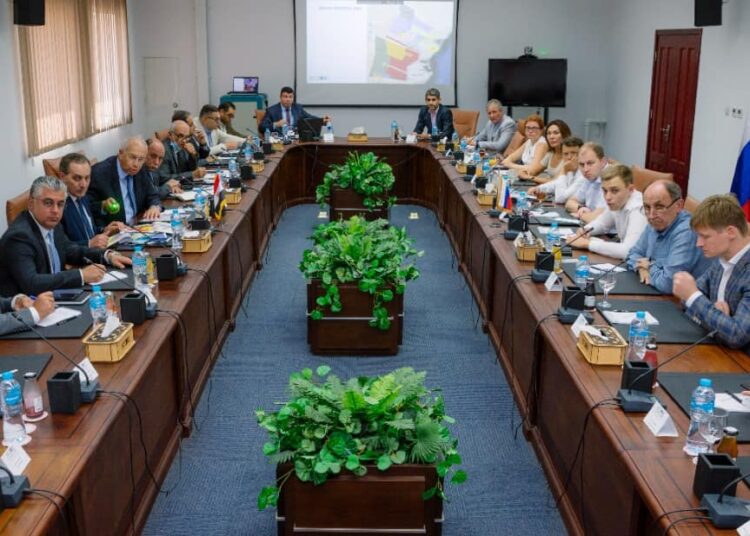Chairman of the Suez Canal Economic Zone (SCZone) Yehia Zaki said on Monday executive steps to start operation of the Russian industrial zone will be by the beginning of 2022 at the latest.
Zaki’s remarks came during his meeting with a Russian delegation of the Ministry of Industry and Trade and Russia’s State Development Corporation as well as representatives of Russian companies which are interested in investment in SCZone.
The Russian delegation inspected the project’s site and visited industrial firms in Ain Al Sokhna, according to a SCZone statement.
Zaki reviewed Ain Al Sokhna’s features as it includes one of the most important ports in the Red Sea in addition to the industrial zone’s infrastructure and facilities.
The SCZone chairman pointed out that the Russian zone, under a new preliminary agreement signed with the Russian side last month, will be extended to East Port Said and Ain Sokhna over an area of 5 million square metres. The first phase of the project will include an extension of 1 million square metres in East Port Said and 500,000 square metres in Ain Sokhna, he said. The Russian delegation’s current visit aims to determine the location of the Russian investing companies, he added.
The Russian side benefits from its presence in the SCZone will be huge, he promised. While Russian companies will benefit, Egypt will also do so because they will create jobs and allow for the transfer of technology, he went on to say.
The new zone is expected to attract some US$7 billion in investment.
The agreement on building the zone represents a shift in strategic relations between Egypt and Russia, and gives Russia access to north African markets and the Mediterranean. It aims to increase bilateral industrial cooperation, enhance investment opportunities, and provide favorable conditions for industrial, scientific, and technical cooperation between the two countries, according to the agreement. It provides for the creation of a special territory with a simplified tax regime and special conditions for the exports of Russian manufacturing enterprises.
It is expected that the new zone will serve as a gateway for Russian industries. Its central location, midway between East and West, would mean cheaper logistics costs for Russian exporters, Khalil explained. Russian manufacturers that establish themselves within the zone will also be able to benefit from agreements between Egypt and the African countries, the EU, Mercosur, a Latin American trade bloc, and with the other Arab countries, all of which give preferential treatment to products manufactured in Egypt.






Discussion about this post